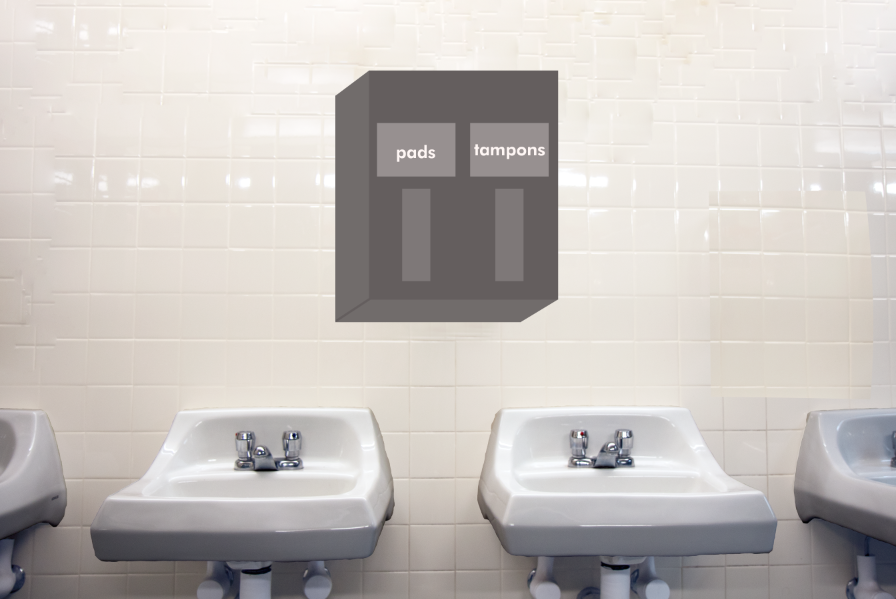Editorial: Shattering the barrier. Period.
May 3, 2019
Starting in elementary school, periods are taught as the form of punctuation marking the end of a sentence. However, when the word period is used to describe the typical body function females experience, only silence is heard. Given the stigma surrounding periods, one can imagine the embarrassment one might face if they must ask for a feminine hygiene product at school.
While there are currently methods in place at Lynbrook for obtaining these products, they are not easily accessible to students. Pads are available in the girls’ locker room, but students must ask the PE teachers in order to obtain one and may feel uncomfortable doing so; additionally, the girls locker room is not easily accessible to those who menstruate but do not identify as female. Students may also attain feminine hygiene products on campus in the gender neutral bathroom in the main office. This bathroom provides students with a way to use or take feminine hygiene products with no questions asked.
Students may also resort to asking for feminine hygiene products from their friends, but it is often difficult for students to quickly find someone who has an extra pad or tampon. This may not provide a fast or even guaranteed solution, and students may feel self-conscious for asking friends, causing even more unease.
Despite these options, they all come with elements of shame and inaccessibility. This prevents students from feeling comfortable when on their period, as they may feel anxious asking for necessary menstrual products and may be unable to obtain them.
“I know a lot of people go the bathroom while on their period and try to hide their products under their shirts, or in a bag,” said junior Audrey Ding. “I don’t think that they should be insecure about something so natural.”
It is important that students who face challenges obtaining feminine hygiene products while at school — whether due to the stigma surrounding talking about menstruation, economic barriers or personal reasons — are provided with solutions from the school.
Though the one gender-neutral bathroom is an accessible option for obtaining feminine hygiene products on campus, it is not publicized enough for it to be an effective solution. A shame-free, more easily accessible and publicized option is necessary. Thus, feminine hygiene products should be available in all bathrooms on campus. All students, regardless of gender, would then have the opportunity to receive the products they need with more convenience and privacy.
Having menstrual products available in all bathrooms is also an important step in breaking the stigma surrounding periods. Periods are a natural occurrence, but the stigma of menstruation silences people who need resources, often fostering shame and insecurity.
“We’re all here to support each other,” said junior Zainab Nasir. “We always talk about how no one should be discriminating against race, but no one can control periods as well. This is the baseline — people should not be shaming others for something they can’t control.”
If students see these products in bathrooms while going about their normal lives at school, they will begin to see that having a period is also a normal part of people’s lives and nothing to be afraid of or intimidated by.
“Every single woman, if they’re fortunate, will have their period,” said Principal Maria Jackson. “It’s a cool, amazing thing — our bodies are made that way — and it has happened forever. So why is it something that people are still scared to talk about?”
Possible challenges to the introduction of feminine hygiene products to bathrooms include the cost, as research about these expenses has yet to be done by the staff. Additionally, the decision would have to be cleared and possibly implemented in all of the FUHSD schools, which would be a large project. Despite these initial struggles, the long-term benefits will create a more accepting learning environment throughout FUHSD for years to come.
Despite menstruation being a natural occurrence, it is viewed as anything but. Providing accessible ways for students to obtain feminine hygiene products is the first step to breaking down the societal norms that perpetuate the negative perception of menstruation. Students should not be ashamed of their periods, and in rendering feminine hygiene products more accessible, students will begin to feel more comfortable about their own bodies.

































































